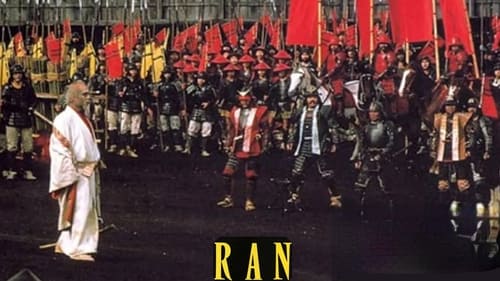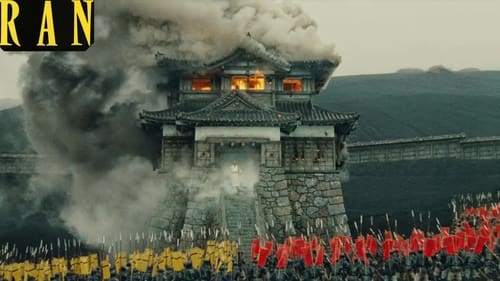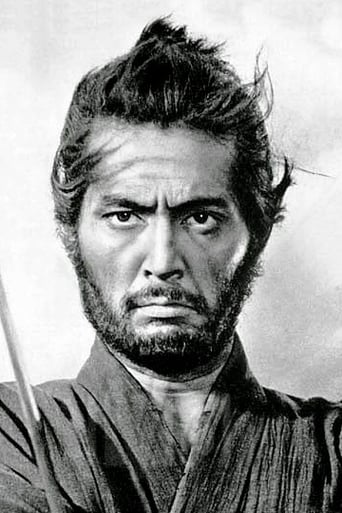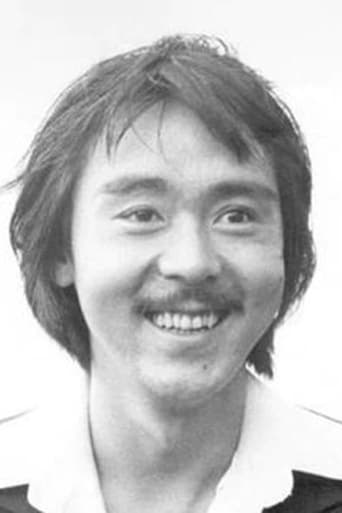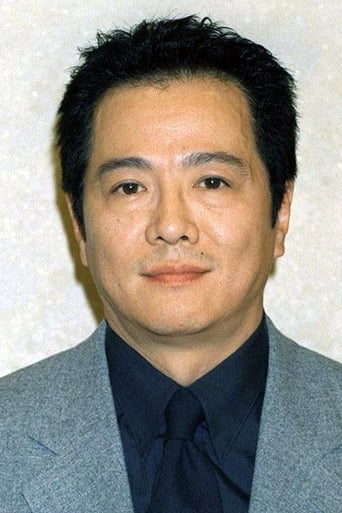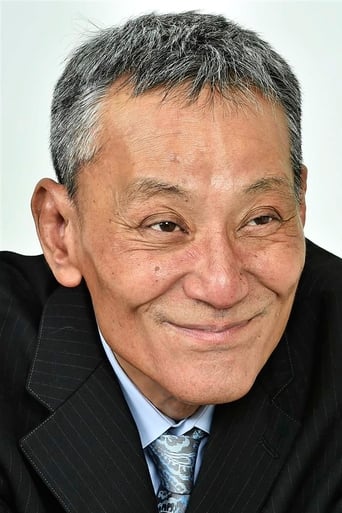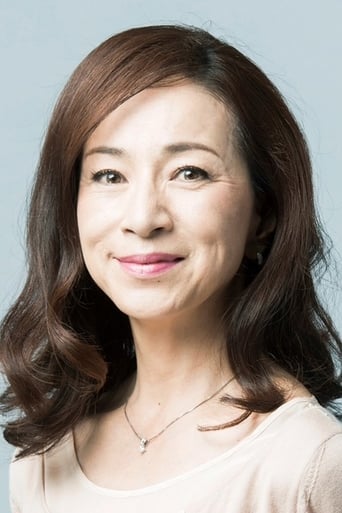Steinesongo
Too many fans seem to be blown away
GamerTab
That was an excellent one.
Plustown
A lot of perfectly good film show their cards early, establish a unique premise and let the audience explore a topic at a leisurely pace, without much in terms of surprise. this film is not one of those films.
Sarita Rafferty
There are moments that feel comical, some horrific, and some downright inspiring but the tonal shifts hardly matter as the end results come to a film that's perfect for this time.
Miguel Neto
Ran is one of the most incredible movies I've seen visually and technically the film is flawless, photography is spectacular, the script is good, the film is over, the pace is okay, I particularly was not bored, a few more people can stay, the battle scenes are great, even for the time, the cast is very good, and all the actors are great, especially Tatsuya Nakadai as Hidetora Ichimonji, the makeup that uses it is excellent, the direction of the master Akira Kurosawa is amazing, he does great things with the camera, the film has some good dialogues, other more boring already, Ran is a great movie with a great cast, an excellent photo, visually spectacular and a great direction of Kurosawa. Note 8.5
Leofwine_draca
This was my fourth Kurosawa film and my favourite to date. Previously, I'd started off by watching SEVEN SAMURAI (a great film), then trying out KAGEMUSHA (which I thought was okay, but too constrained by budget). Next up was an early classic, RASHOMON, which was a fine human drama, and now comes RAN, Kurosawa's final historical epic and the film that he claimed KAGEMUSHA was a mere warm-up for. I can see that. RAN is an epic film, truly epic and one of the best-shot films I've ever seen. Every frame of the film seems to have been painstakingly composed and the result is a bright, colourful, and vivid production that fully brings to life the castles, costumes, and characters of feudal Japan.Tatsuya Nakadai, returning from KAGEMUSHA, here plays Lord Ichimonji, an immensely powerful ruler who concedes that power to his three sons at the film's beginning. However, his plans quickly go awry and before too long he finds himself ostracised from Japanese society and a literal outcast. This film is a loose reworking of the Shakespeare classic King Lear (another favourite of mine), something I really enjoyed as Kurosawa takes elements of the Shakespeare plot without following it slavishly. One of the best inclusions is the fool, who comments on the on-screen antics the same way as he did in the Shakespeare play.It goes without saying that RAN is a tragedy and, indeed, it must be one of the most tragic films I've ever witnessed. Those looking for a happy ending should go elsewhere as this is all about doom, despair, and overall the failings of human nature. There's a fine cast of stand-out performers but one of the best has to be Mieko Harada, whose Lady Macbeth-style character is vengeful and terrifying. Nakadai, unrecognisable in ghostly, age-old makeup, is outstanding as the lord losing his mind, and Kurosawa is there to capture every little nuance. The most dramatic part of the film is a massacre set in a castle which is full of on screen death and destruction and successfully depicts the ferocity of battle better than 99% of other films do.Like most of the Kurosawa historical epics, this is a lengthy and slow moving film, one that emphasis characterisation over action, plot over incident, but it's well worth sitting through. In the end, I found this one of the most rewarding films I've ever watched and anybody who professes themselves to be a fan of the cinematic medium should have it in their collection.
quinimdb
"Ran" is a poignant epic based on Shakespeare's King Lear. Many call it one of the best (if not the best) Shakespeare film adaptations, and while I haven't seen enough Shakespeare films to say for sure, it's hard to see any other one topping this one.The film begins on huge rolling hills, where Lord Hidetora has gathered his acquaintances and his three sons. He blacks out, and suddenly he decides he will choose his successor right there. He picks his oldest son, Taro. Taro and the middle son, Jiro, suck up to their father by saying they will serve him loyally until his death. The youngest son, Sabaro, knows exactly what is going on. He calls them out on it. Then Lord Hidetora decides he will give power to all three of his sons, but Sabaro once again sees flaws in this. He knows the three brothers will not get along. He is banished, since Hidetora needs everyone to be loyal and follow him blindly, rather than taking criticism when he needs to.This causes a slow downward spiral. Taro is convinced by his wife, whose family was killed and village was burned by Hidetora, to force his father to give him complete power, but he is clearly not cut out for being a King. He already can't control his soldiers. Hidetora leaves the kingdom and while he is gone, Tango Hiragana, one of his advisers, comes to him with gifts given from peasants. Hidetora is told that the samurai never accepts charity, so he orders the peasants dead, but he finds out from Tango that those peasants were told by Taro to never send food to Hidetora, or else they will die. These people were pushing away Taro and asking for Hidetora back, but he just killed them. Tango suggests Hidetora should put Sabaro as king, but Hidetora didn't want the truth. He now has no where. Hidetora is told that Tango is just trying to stir up trouble between his family and take the throne for himself. He pretends that he did nothing wrong, but this causes his downfall. Both Taro and Jiro betray him and invade the castle at the same time, in an incredibly violent and intense scene. Not only have Hidetoras sons betrayed him, but all of his loyal followers have died in front of his face and it was his fault. Despite nearly dying many times, and arrows and gunfire flying all around him, Hidetora comes out alive, and what follows is his punishment, his personal hell. He confronts all of his past atrocities, such as a boy whose family he killed, and eyes torn out. The wreckage of a palace he burnt to the ground. But the two most truthful people in the film, aside from Sabaro, Lady Kaede, his loyal jester whom he saves earlier in the film (part of what shows Hidetora has the potential to be a good person, since she jokes about his foolishness frequently), and Tango. They look for Sabaro. Meanwhile, his son Jiro, who killed his other son that was taking the throne, is sitting atop the throne, but he is being controlled by his brothers widow, who is now his wife. She threatens him and then she controls him by earning his trust. Jiro isn't strong enough to be a leader of his own, so he succumbs to blind loyalty to his new "wife". Sabaro confronts Jiro, and this is where Jiros downfall begins. He is told by many that he shouldn't start a war with Sabaro, and he tells Sabaro he won't, yet he stabs him in the back the first chance he gets. He attacks, but Sabaro has a plan. There are men in the woods firing guns at the oncoming attackers, and despite Jiros orders, which they don't want to follow since he didn't truly earn their trust, the men retreat. Jiros wife reveals that she was just trying to get revenge for her family, and she did it. Then she is killed. Sabaro then reunites with Hidetora, and Hidetora at first can't forgive himself and doesn't think Sabaro will forgive him, but he comes to his senses and seems completely changed, and he essentially had redeemed himself. All he cares about anymore is Sabaro. Then Sabaro is killed by one of Jiros soldiers. Lady Kaede blames the gods who she worshiped, but the true blame is on man. As one soldier states, the gods try to make things right, but man has to always go and make things worse. We have an obsession with violence and our rulers will always continue to kill and kill, until the rational ones die and the cycle repeats itself. Then we get a poignant shot of Tsurumaru, the kid who had his eyes torn out, dropping a portrait of Buddha as he stands atop a mountain, showing how humans themselves deny justice from the gods and truly control things. And the good will always go out with a whimper, not a bang. They don't get to go out as valiant soldiers.
rogerdarlington
This is not a film that would ever attract a mainstream Western audience: it is in Japanese with sub-titles, it runs to 2 hours 42 minutes, and it is a variation of the storyline of Shakespeare's "King Lear". Yet, for serious fans of cinema, this is truly a classic. It was directed by the acclaimed Akira Kurosawa who made such outstanding films as "Seven Samurai" and was in his mid 70s when he shot this work. The title "Ran" is Japanese for "chaos", but can also be translated as "confused" or "disturbed". and the characters show all these attributes in a multi-layered narrative.The king-like character in 16th century Japan is Lord Hidetora (played by Tatsuya Nakadai) and, instead of Shakespeare's three daughters achieving catharsis, we have three sons seeking power and revenge with - in one case - the support of a daughter- in-law of the Lord who rivals Lady Macbeth for her cruelty (Mikeo Harada is the striking actress). The film begins with some long, brooding sequences but later we have some wonderfully choreographed battle scenes with horses and arrows aplenty. The cinematography is breathtaking but the suffering is acute - as one character puts it: "Man is born crying. When he has cried enough, he dies."



